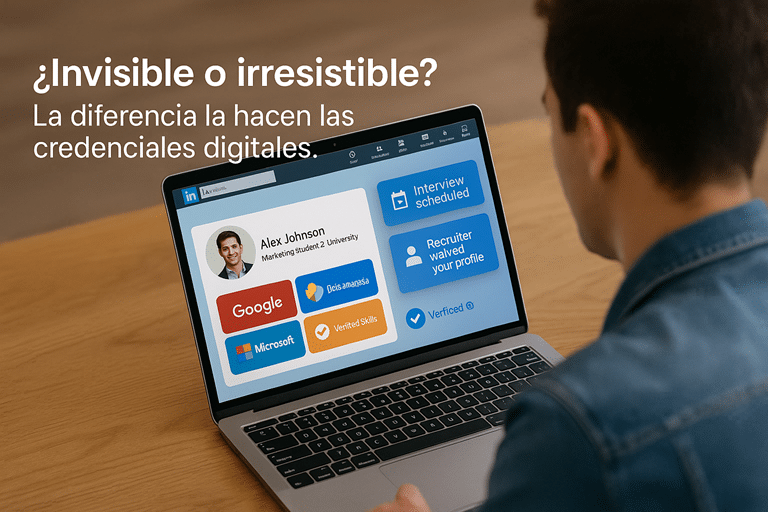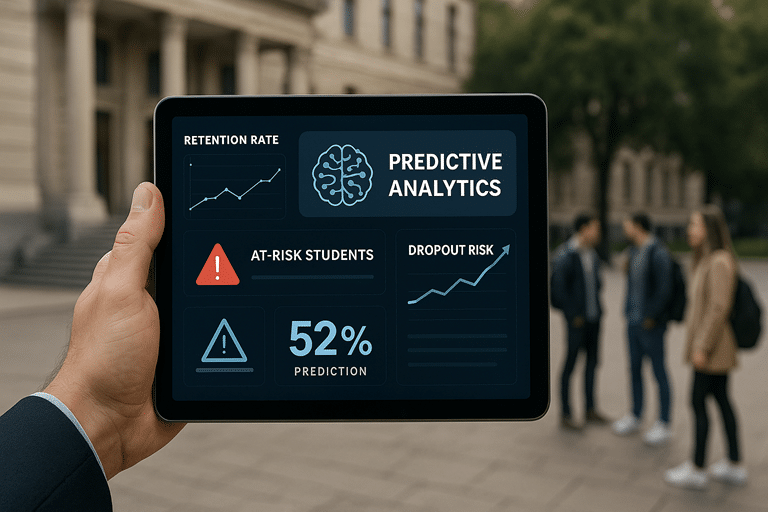Artificial intelligence (AI) has disrupted various aspects of our lives, and one of the fields in which it has had a significant impact is education. The transformation that AI is bringing about in teaching is remarkable, opening up new possibilities and improving the educational experience for students and teachers alike.
Personalization of learning
One of the main contributions of artificial intelligence in education is the ability to personalize the learning process. AI systems can analyze the performance and preferences of each student, thus adapting educational materials and teaching strategies on an individualized basis. This allows students to progress at their own pace, focusing on areas where they need the most help and quickly moving through those in which they are already proficient.
Virtual tutors and smart assistants
Artificial intelligence has also led to the creation of virtual tutors and intelligent assistants who can provide support to students at any time. These systems are designed to answer questions, offer additional explanations, and guide students through practical exercises. Additionally, by using machine learning algorithms, these virtual tutors can adapt to each student’s individual needs, providing personalized attention that can be difficult to achieve in traditional educational settings.

Data analysis for continuous improvement
Data collection and analysis are fundamental elements in modern teaching, and artificial intelligence has significantly enhanced this capability. AI systems can analyze large amounts of data to identify patterns in student performance, evaluate the effectiveness of specific teaching methods, and provide valuable information for educational decision-making. This allows educators to adjust their approaches based on students’ actual needs and continually improve the quality of teaching.
Automation of administrative tasks
In addition to improving the learning experience, artificial intelligence has also proven useful in automating administrative tasks. Grade management, creating school schedules, and organizing educational resources are just some of the areas where AI can ease the workload of educators, allowing them to focus more on direct interaction with students.
Exploring the role of AI in digital certification processes
Of the many fields within education where AI is playing a critical role, one that will not be overlooked is skills certification. The digital credentials and AI complement each other very well during all stages of a student’s certification, from curriculum construction to recognition design. Here are some ways AI is used in certification processes:
- Helps analyze learning content to design digital credentials that accurately reflect skills and knowledge.
- Generates metadata and tags, simplifying credential discovery for learners.
- Customized learning paths are recommended based on credentials earned, optimizing the learning journey.
- AI-based assessment tools such as quizzes and simulations save time and ensure effectiveness.
- Credentials are aligned with industry standards and job requirements, increasing their value to employers.
Challenges and ethical considerations
Despite the obvious benefits, the implementation of artificial intelligence in teaching also raises challenges and ethical considerations. Data privacy, equity in access to these technologies, and the need to maintain a balance between automation and human interaction are critical aspects that must be addressed carefully and thoughtfully.
Based on the above, we can deduce that artificial intelligence is transforming teaching in ways that previously seemed futuristic. Personalization of learning, virtual tutors, data analysis and task automation are improving the quality and efficiency of education. However, it is essential to address ethical challenges and ensure that these technologies are used responsibly to maximize their beneficial potential in education.
Subscribe to blog here and receive all our content







